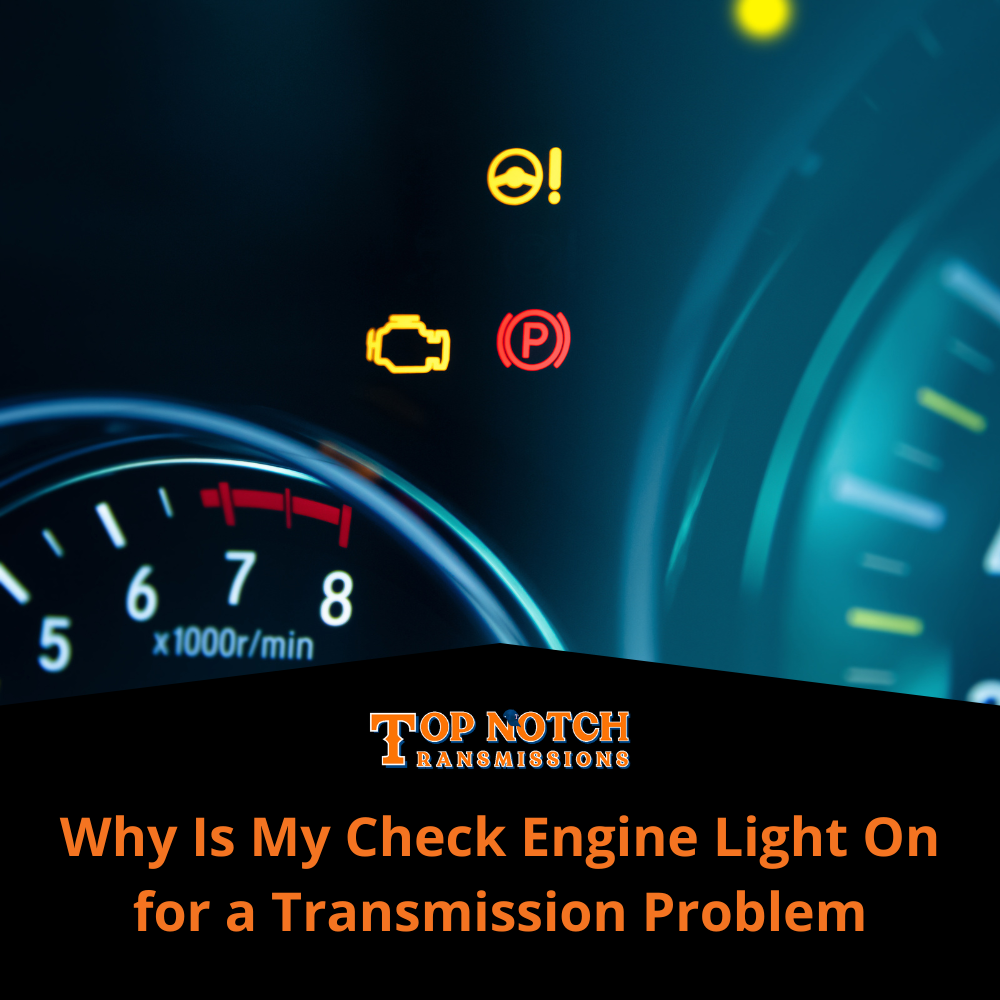
- Give Us A Call (817) 386-7592
- Get Directions
-
Financing Available

Your check engine light just came on—and your vehicle still seems to be driving fine. Or maybe it’s shifting weird, hesitating, or even jerking a little. Either way, the light is on, and you’re wondering: could it be a transmission issue? For Fort Worth drivers, the answer is often yes. And if it is, ignoring it could lead to expensive repairs down the line.
At Top Notch Transmissions, we’ve seen it all. Every week, we help customers who drive in with that one glowing warning light on the dash and leave with answers, solutions, and a much clearer picture of their vehicle’s health. If your check engine light is on and you suspect a transmission problem, here’s what you need to know—and why it’s smart to get it checked out right away.
The check engine light (CEL) is your vehicle’s way of telling you that something isn’t operating within normal parameters. It doesn’t always mean the engine itself has a problem—it could be your emissions system, your fuel system, or yes, your transmission.
Modern transmissions are electronically controlled. That means they rely on sensors, solenoids, fluid pressure, and a computer (the TCM or Transmission Control Module) to operate correctly. When something within that system starts to fail or act unpredictably, your vehicle’s onboard computer will recognize it and trigger the check engine light.
In Fort Worth, where traffic, heat, and long-distance driving can push your transmission to the limit, these issues are all too common.
There are a few key ways transmission trouble can light up your dashboard:
The check engine light alone doesn’t confirm a transmission issue—but if you notice any of the following symptoms along with the light, it’s likely transmission-related:
These symptoms—especially in combination—mean it’s time to call a transmission specialist, not just a general mechanic.
Fort Worth traffic and weather are tough on transmissions. The longer you drive with a potential transmission problem, the more likely you are to cause severe (and expensive) damage.
What starts as a $100 solenoid replacement can quickly become a $3,000 transmission rebuild if left unchecked. Acting early saves money—and keeps you from getting stranded during rush hour or in 100-degree Texas heat.
At Top Notch Transmissions, we offer thorough diagnostics using advanced scan tools that go far beyond a basic code reader. We’ll tell you not just what code triggered the light, but what’s causing it and how to fix it.
If your check engine light is on and you suspect a transmission issue, here’s how we help:
If your check engine light is on in Fort Worth and you’re wondering if it’s your transmission—don’t guess. Call Top Notch Transmissions and schedule a diagnostic today. We’ll give you real answers, expert service, and peace of mind you can drive with.
